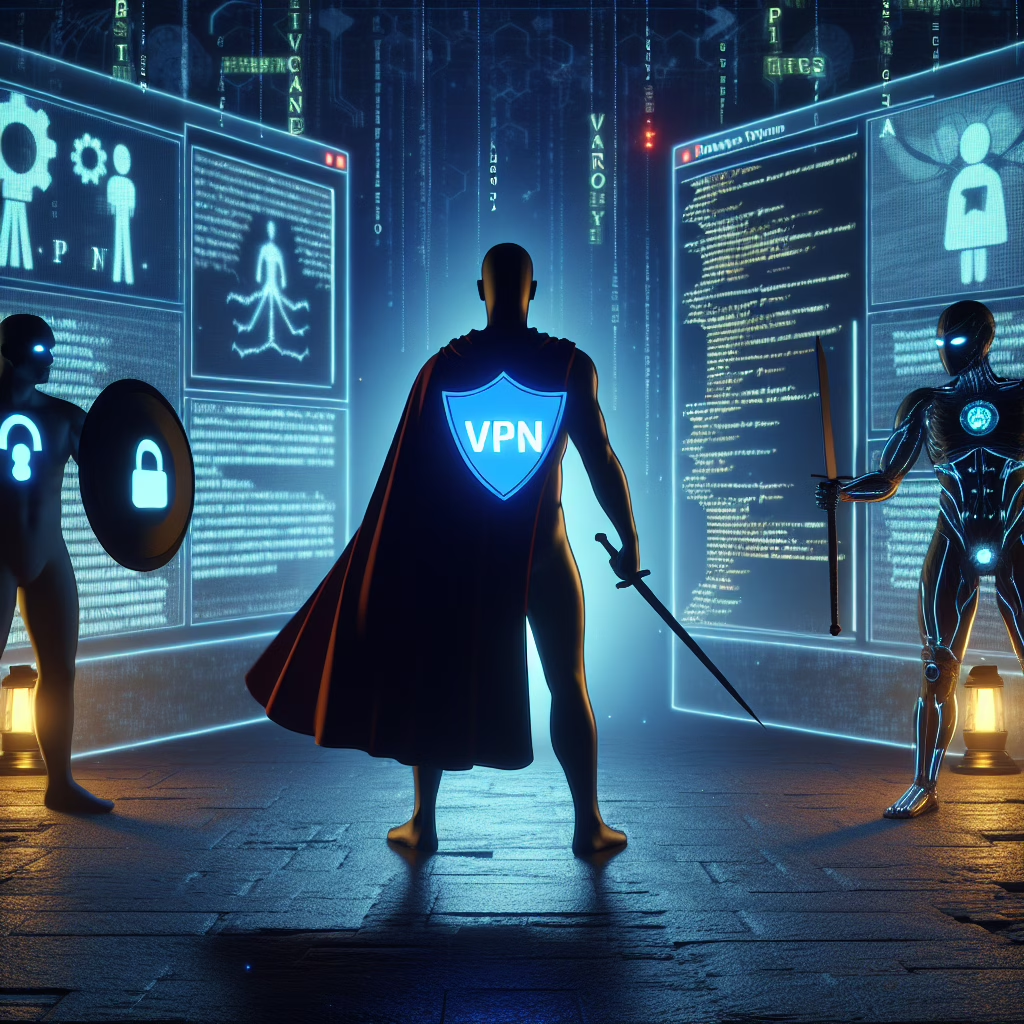Ah, the world of VPNs and anti-piracy! It’s a classic story of technology and legislation attempting to tango together, with one leading the charge for privacy while the other insists on keeping a firm grip on intellectual property rights. Recently, the MPA (Motion Picture Association) has stepped into this dance floor, urging VPNs to join their anti-piracy crusade in Europe. So, let’s put on our analytical hats and see what this means for users who love their streaming services but also cherish their online privacy.
VPNs: The Unsung Heroes of Privacy
First things first, let’s talk about what a VPN is. Think of it as your personal cloak of invisibility for the internet. When you connect to a VPN, it encrypts your data and hides your IP address, making you virtually untraceable. This nifty tool allows you to browse, stream, and download content while pretending you’re lounging on a beach in the Maldives when you might actually be on your couch with a bowl of popcorn.
However, the MPA has raised concerns about how these digital superheroes are being used. They argue that VPNs can sometimes aid those dastardly pirates who plunder content from unsuspecting creators. It’s like having a superhero who occasionally moonlights as a villain. But fear not! This doesn’t mean all VPNs are bad—many prioritize user privacy while adhering to legal standards.
The MPA’s Call to Action
The MPA isn’t just sitting back and enjoying the show; they are actively calling for stricter regulations that would require VPN providers to take more responsibility in preventing piracy. Their idea? If VPNs can help users access content anonymously, surely they can also help curb the nefarious activities of online pirates!
Now, this might sound like an episode of a legal drama where everyone is shouting “You can’t handle the truth!” but it does raise interesting questions about how we balance privacy with responsibility. Can we have our cake and eat it too? The MPA believes we can if VPNs step up to the plate. But will they?
Privacy vs. Security: A Fine Balancing Act
This brings us to the heart of the matter: how do we strike a balance between VPN privacy and security? Many users appreciate their ability to browse freely without being tracked, but if that freedom starts endangering artists’ rights, where do we draw the line?
Some critics argue that imposing additional responsibilities on VPNs could lead to a slippery slope where user privacy is compromised for the sake of compliance. Imagine logging into your favorite streaming service only to find out that your VPN provider has been forced to keep tabs on your viewing habits. Yikes!
On the flip side, supporters of the MPA’s stance argue that it’s about time VPN providers take some accountability for how their services are used. After all, they’re providing an essential tool that can both protect users and potentially facilitate piracy.
The Future of VPNs in Europe
The European landscape is already bustling with discussions around digital rights and regulations. With policies constantly evolving, VPN providers may soon find themselves in a position where they must navigate this complex web (pun intended) of legal expectations while continuing to serve their users.
The potential implications are vast. If new regulations come into play, we could witness a significant shift in how VPN services operate. Some may choose to comply and risk user dissatisfaction; others may reject compliance altogether and face penalties. Either way, it promises to be an interesting ride. VPNs must also consider how this affects their reputation and user trust in their services.
A Call for User Awareness
If there’s one takeaway from this entire saga, it’s that users need to stay informed. Understanding how your VPN operates and what policies it adheres to can make all the difference in protecting your online privacy while still respecting creators’ rights.
As you navigate through these murky waters, remember: knowledge is power! So before you click “Connect,” consider what’s at stake—not just for you but for artists everywhere. User discretion and informed choices are essential in this increasingly regulated environment.
Your Thoughts Matter!
This ongoing debate between VPNs, user privacy, and anti-piracy measures is crucial for everyone involved—from casual streamers to dedicated creators. We’d love to hear your thoughts! Do you think VPNs should take more responsibility in combating piracy? Or do you believe that user privacy should reign supreme? Share your opinions in the comments below!
A special thank you to TechRadar for providing insights that inspired this article! For more discussions about how security flaws impact technology and media, check out our [*Cisco warns over worrying security flaws in ISE affecting AWS, Azure cloud deployments – here’s what you need to know*](https://www.geekyopinions.com/cisco-warns-of-security-flaws-in-ise-for-aws-azure-users/) article. Additionally, if you’re interested in how gaming intersects with technology and legislation, see our coverage on [*Final Fantasy Tactics remaster officially announced with a Nintendo Switch 2 version confirmed for September*](https://www.geekyopinions.com/final-fantasy-tactics-remaster-exciting-news-for-switch-fans/).

